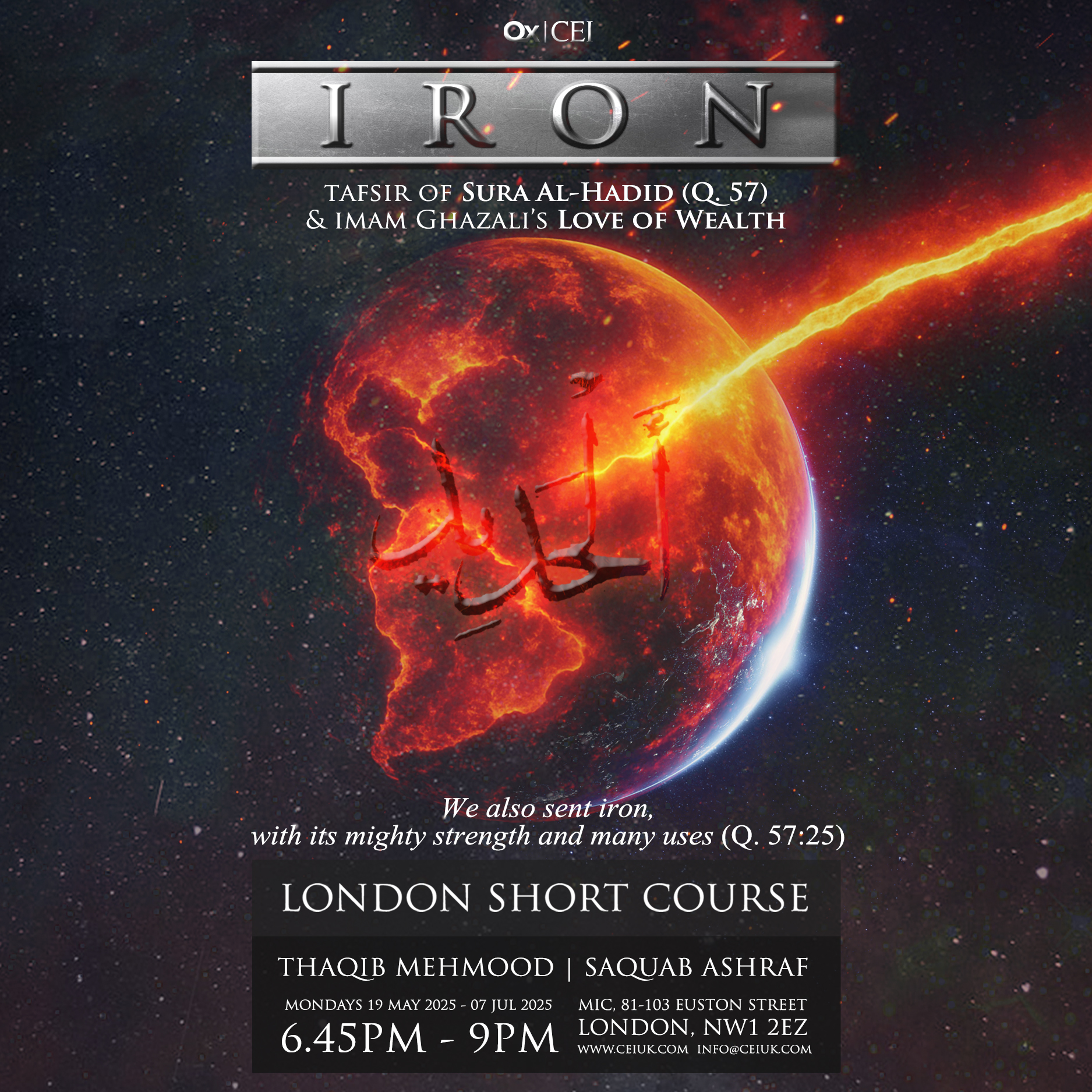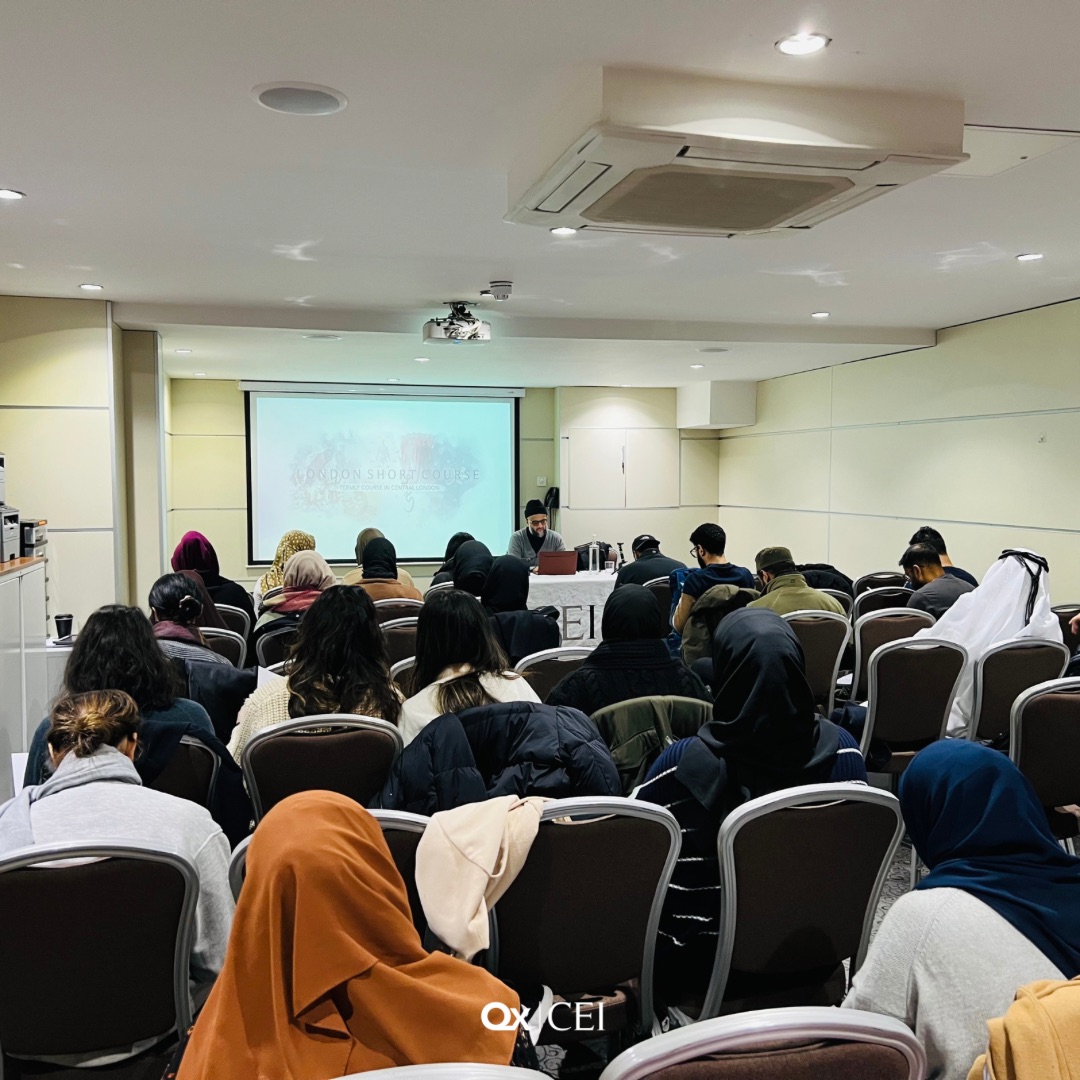Click donate to help fundraise for Q-Institute on Just Giving
Support the Q-Institute
TERM 3 | 2025
Join us for an exciting seven week short course with two different teachers.
In this short course we will study the Tafsir of Sura Ḥadīd (Iron) and Book 27 in Ghazali’s Ihya ‘Ulum al-Din: The Condemnation of Greed and Love of Wealth.
Scroll down for course details, teachers and poster. Click on register to enrol. Registered attendees will be issued with a student pack on the first day of the course.


In this course we will study the basic structure of this sura and explore some of powerful lessons therein.
Most scholars consider al-Ḥadīd to be a Madinan sura. It takes its name from the phrase We sent down iron in v. 25.
Al-Ḥadīd is the first in a group of five sūrahs known as “The Glorifiers” (al-Musabbiḥāt), meaning those sūrahs that begin with a glorification of God; the others are 59, 61, 62, and 64. According to a ḥadīth, “Within [the Glorifiers] there is a verse that is better than a thousand verses”
Some scholars are of the opinion that this ḥadīth refers to v. 3 of this surah, while others propose that it refers to the last verse of Sūrah 59, al-Ḥashr.
Al-Ḥadīd begins with six verses that emphasize the Omnipresence and Omnipotence of God.
The next five verses (vv. 7–11) then enjoin belief in God and spending one’s wealth in the way of God.
This is followed by four verses (vv. 12–15) that contrast the fate that awaits the believers and the hypocrites on the Day of Judgment.
The fourth and longest section (vv. 16–24) begins with a call in v. 16, which most say is to believers, to humble or soften their hearts to the remembrance of God. It then discusses the ephemerality of this world and the illusory nature of its delights, continuing the call to spend of one’s wealth from the second section and the contrast between believers and disbelievers from the third.
The last section (vv. 25–29) extends the discussion to the People of the Book, criticizing them for having failed to be true to their prophets and calling upon them to believe in the prophethood of Muhammad.
This short course explores the 27th book of Abu Hamid Al-Ghazali’s Ihya ‘Ulum al-Din (The Revival of the Religious Sciences), titled *Condemnation of Greed and Love of Wealth.
This section of the Ihya delves into the ethical and spiritual perils of excessive attachment to material wealth and how it can obstruct one’s path to true devotion and inner contentment.
Through a structured analysis of Al-Ghazali’s insights, participants will critically engage with classical Islamic thought while drawing parallels to contemporary concerns regarding materialism and wealth accumulation.
By the end of the course, participants will:
Explore Al-Ghazali’s insights on the love of wealth and greed, situating them within the broader context of Islamic ethics and spirituality. This perspective highlights the moral implications of material desires and their impact on an individual’s spiritual journey.
Examine key themes such as the dangers of excessive wealth, the virtues of detachment, and the significance of contentment (qana‘ah) in fostering spiritual development. Understanding these interconnected concepts can provide valuable insights into achieving a balanced and fulfilling life.
Examine how Al-Ghazali’s teachings can inform contemporary issues, including consumerism, financial ethics, and the quest for a balanced life. His insights provide valuable perspectives on these challenges, encouraging a thoughtful approach to ethical consumption and life balance.
Mondays
19th May 2025 to 7th July 2025
(7 Sessions)
6.45pm–9pm
MIC (The Wesley)
81-103 Euston Street
London (Euston)
NW1 2EZ
– Sh Thaqib Mehmood
– Dr S Ashraf
Notifications